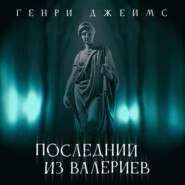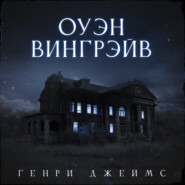По всем вопросам обращайтесь на: info@litportal.ru
(©) 2003-2025.
✖
The Tragic Muse
Автор
Год написания книги
2018
Настройки чтения
Размер шрифта
Высота строк
Поля
Peter Sherringham also addressed him with an "Oh it's all right; they come down on you like a shot!" and the young man continued ingenuously:
"Do you mean to say you've to pay money to get into that awful place—that it's not you who are paid?"
"Into that awful place?" Lady Agnes repeated blankly.
"Into the House of Commons. That you don't get a high salary?"
"My dear Nash, you're delightful: don't leave me—don't leave me!" Nick cried; while his mother looked at him with an eye that demanded: "Who in the world's this extraordinary person?"
"What then did you think pocket-boroughs were?" Peter Sherringham asked.
Mr. Nash's facial radiance rested on him. "Why, boroughs that filled your pocket. To do that sort of thing without a bribe—c'est trop fort!"
"He lives at Samarcand," Nick Dormer explained to his mother, who flushed perceptibly. "What do you advise me? I'll do whatever you say," he went on to his old acquaintance.
"My dear, my dear–!" Lady Agnes pleaded.
"See Julia first, with all respect to Mr. Nash. She's of excellent counsel," said Peter Sherringham.
Mr. Nash smiled across the table at his host. "The lady first—the lady first! I've not a word to suggest as against any idea of hers."
"We mustn't sit here too long, there'll be so much to do," said Lady Agnes anxiously, perceiving a certain slowness in the service of the bœuf braisé.
Biddy had been up to this moment mainly occupied in looking, covertly and in snatches, at Peter Sherringham; as was perfectly lawful in a young lady with a handsome cousin whom she had not seen for more than a year. But her sweet voice now took license to throw in the words: "We know what Mr. Nash thinks of politics: he told us just now he thinks them dreadful."
"No, not dreadful—only inferior," the personage impugned protested. "Everything's relative."
"Inferior to what?" Lady Agnes demanded.
Mr. Nash appeared to consider a moment. "To anything else that may be in question."
"Nothing else is in question!" said her ladyship in a tone that would have been triumphant if it had not been so dry.
"Ah then!" And her neighbour shook his head sadly. He turned after this to Biddy. "The ladies whom I was with just now and in whom you were so good as to express an interest?" Biddy gave a sign of assent and he went on: "They're persons theatrical. The younger one's trying to go upon the stage."
"And are you assisting her?" Biddy inquired, pleased she had guessed so nearly right.
"Not in the least—I'm rather choking her off. I consider it the lowest of the arts."
"Lower than politics?" asked Peter Sherringham, who was listening to this.
"Dear no, I won't say that. I think the Théâtre Français a greater institution than the House of Commons."
"I agree with you there!" laughed Sherringham; "all the more that I don't consider the dramatic art a low one. It seems to me on the contrary to include all the others."
"Yes—that's a view. I think it's the view of my friends."
"Of your friends?"
"Two ladies—old acquaintances—whom I met in Paris a week ago and whom I've just been spending an hour with in this place."
"You should have seen them; they struck me very much," Biddy said to her cousin.
"I should like to see them if they really have anything to say to the theatre."
"It can easily be managed. Do you believe in the theatre?" asked Gabriel Nash.
"Passionately," Sherringham confessed. "Don't you?"
Before Nash had had time to answer Biddy had interposed with a sigh. "How I wish I could go—but in Paris I can't!"
"I'll take you, Biddy—I vow I'll take you."
"But the plays, Peter," the girl objected. "Mamma says they're worse than the pictures."
"Oh, we'll arrange that: they shall do one at the Français on purpose for a delightful little yearning English girl."
"Can you make them?"
"I can make them do anything I choose."
"Ah then it's the theatre that believes in you," said Mr. Nash.
"It would be ungrateful if it didn't after all I've done for it!" Sherringham gaily opined.
Lady Agnes had withdrawn herself from between him and her other guest and, to signify that she at least had finished eating, had gone to sit by her son, whom she held, with some importunity, in conversation. But hearing the theatre talked of she threw across an impersonal challenge to the paradoxical young man. "Pray should you think it better for a gentleman to be an actor?"
"Better than being a politician? Ah, comedian for comedian, isn't the actor more honest?"
Lady Agnes turned to her son and brought forth with spirit: "Think of your great father, Nicholas!"
"He was an honest man," said Nicholas. "That's perhaps why he couldn't stand it."
Peter Sherringham judged the colloquy to have taken an uncomfortable twist, though not wholly, as it seemed to him, by the act of Nick's queer comrade. To draw it back to safer ground he said to this personage: "May I ask if the ladies you just spoke of are English—Mrs. and Miss Rooth: isn't that the rather odd name?"
"The very same. Only the daughter, according to her kind, desires to be known by some nom de guerre before she has even been able to enlist."
"And what does she call herself?" Bridget Dormer asked.
"Maud Vavasour, or Edith Temple, or Gladys Vane—some rubbish of that sort."
"What then is her own name?"
"Miriam—Miriam Rooth. It would do very well and would give her the benefit of the prepossessing fact that—to the best of my belief at least—she's more than half a Jewess."
"It is as good as Rachel Felix," Sherringham said.
"The name's as good, but not the talent. The girl's splendidly stupid."

















